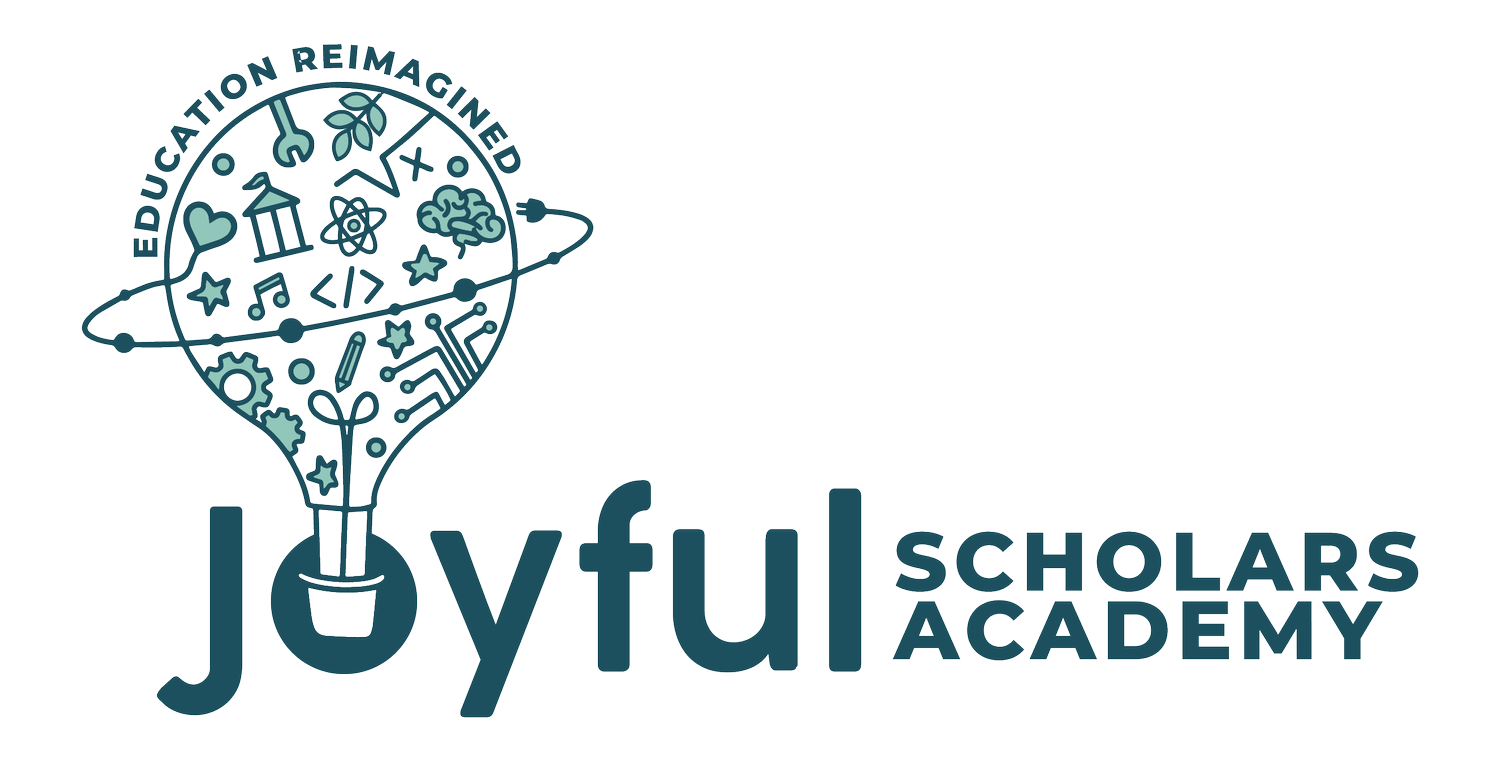FAQ
-
What is your educational calendar?
We operate on an 10-month calendar September through June. Our flexible program allows families to travel together throughout the year, without sacrificing any learning.
-
How do you monitor and limit screen time?
At JSA, we believe in the power of balance. Using the incredible, self-paced eLearning tools now available, we are able to provide the rigor needed for learning math, vocabulary, spelling and grammar in about 90 minutes each day, while freeing up the rest of the day for engaging, project-based learning. The two are highly complementary.
Our Spark Studio rarely uses any screen time. Screen time is only provided to learners who are advancing more quickly in core skills.
-
Do you offer Special Education services?
At JSA we are unequipped to serve children with serious learning disabilities. If your child is able stay committed to studio covenants set by them and their peers, contribute to discussions and group projects, and respect and show courtesy to everyone at the studio - they will be a great addition.
We have been able to serve young heroes with dyslexia if they receive special training. We believe that many minor learning disabilities are commonly misdiagnosed. We believe movement is important to all children and we incorporate movement into our entire day.
-
Do you provide lunch?
We do not provide lunch for our learners. It is the responsibility of the learner to bring their lunch each day.
-
What do you mean by hero's journey?
We believe that each of us has a special calling in life, and a series of trials and tests that must be faced with integrity and purpose, in order to live a satisfying and fulfilled life. Our mission is to prepare your child for his or her special journey.
-
What do you mean every child can change the world?
We believe each of our heroes will find a passion — something they love and have a gift to do. They will use this gift to serve others and fulfill a need they are passionate about in the world. This may be by becoming a shoe-shiner who tells stories and makes people's day just by doing his job with love and vigor; it may be by becoming a coach who sees the light in a child’s eyes and guides her to pursue a dream; it may be by becoming a father or mother who leads a family on a Hero's Journey; it may be becoming an entrepreneur or business leader guided by compassion and integrity; or it may be by becoming an artist or writer who brings beauty to people's lives.
-
Why do you focus on teaching the "American-Experiment"?
We believe in liberty and justice and the ideals of the American revolution as the cornerstones of civilization. In addition to experiential learning, we will study the American documents and the meaning behind them, as we examine other cultures and forms of government.
-
What does freedom mean to a learner?
Jeff Sandefer, Founder of Acton Academy has offered this encounter with a learner to demonstrate the value of freedom to our children.
“I asked him (the learner) the question, ‘What’s the most important thing about Acton Academy?’ And he said, ‘Freedom,’” Sandefer recalled. Then after a long pause, the student added, ‘Freedom comes with responsibility.’
“That young man … was five-and-a-half-years-old. That’s what we see over and over and over again. If you provide freedom with responsibility and the right guardrails, then you get out of the way, amazing things happen,” Sandefer said.
-
What are covenants?
Covenants (contracts) are promises made to oneself and other members of the studio. They are used to capture promises made between learners, parents, guides, and the owner.
A civil society is a community of citizens who voluntarily assemble to accomplish a common mission, such as the Rotary Club or Boy/Girls Clubs. Civil societies do not depend on a central government or a central authority to issue edicts; instead, they agree on a purpose and rule themselves.
Learning to establish, uphold and amend the studio contracts drives self-management and self-governance in the studios, as the tribes swing between anarchy and tyranny.
-
How do you assess mastery?
Mastery is measured by points, badges, exhibitions, and portfolios. Points are goals accomplished each day to keep the learner pushing forward. Badges are achieved through peer to peer accountability and committee accountability. Exhibitions are the opportunity for a team or individuals to present their project mastery to the tribe/parents/field experts, and portfolios are the collective work of the individual’s badges and projects.
It is natural that learner’s progress one to two grade levels in core disciplines beyond their traditional grade level. Leadership, accountability, integrity, determination, communication (written/verbal), problem-solving skills - to name a few - are exceptionally beyond their school-aged peers.
